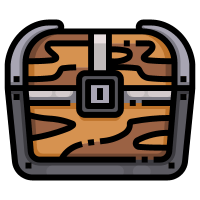- <% result.name %>
Ads keep this site online however. You can upgrade to support the site and enjoy extra benefits! Click to learn more
Discover all Story Shack apps
Discover more random name generators
- Dwarf Name Generator
- Girl Name Generator
- Random Letter Generator
- Gamertag Generator
- Superpower Generator
- Warrior Cat Name Generator
- Clan Name Generator
- Anime Name Generator
- Elf Name Generator
- Korean Name Generator
- Random Object Generator
- Company Name Generator
- Pirate Name Generator
- Country Name Generator
- Character Name Generator
- Random Word Generator
- Kingdom Name Generator
- Pictionary Word Generator
- Random Movie Generator
- Random Topic Generator
- Rap Name Generator
- Random Adjective Generator
- Wizard Name Generator
- High Elf Name Generator
- Tiefling Name Generator
- Story Title Generator
- Quote Generator
- Tabaxi Name Generator
- Wrestler Name Generator
- Code Name Generator
- Italian Name Generator
- God Name Generator
- Evil Name Generator
- Alien Name Generator
- Halfling Name Generator
- Khajiit Name Generator
- School Name Generator
- Witch Name Generator
- Guild Name Generator
- Restaurant Name Generator
- Dragonborn Name Generator
- Fairy Name Generator
- Drow Name Generator
- Gnome Name Generator
- Tavern Name Generator
- Catchy Name Generator
- Half-Elf Name Generator
- Car Name Generator
- Street Name Generator
- Necron Name Generator (Warhammer 40K)
- Alien Race Name Generator
- Abydonian Name Generator (Stargate)
- Chiss Name Generator (Star Wars The Old Republic)
- Catfolk Name Generator (Pathfinder)
- Tengu Name Generator (Pathfinder)
- Verdenian Name Generator (The Witcher)
- Forest Name Generator
- Gnoll Name Generator (World Of Warcraft)
- Leg Armor Name Generator
- Tenakth Tribe Name Generator (Horizon Forbidden West)
- Harbor Name Generator
- Alliance Name Generator
- Maraskan Name Generator (The Dark Eye)
- Amazon Name Generator (DC Universe)
- Other Race Name Generator (Dragon Ball)
- Tree Name Generator
- Kyrian Name Generator (World Of Warcraft)
- Sin Generator
- Mecha Name Generator
- Hivewing Name Generator
- LotR Dwarf Name Generator
- Ayleid Name Generator
- Avatar Air Nomad Name Generator
- Trill Name Generator (Star Trek)
- Kandra Name Generator (Mistborn)
- Skeksis Name Generator (The Dark Crystal)
- Metal Name Generator
- Frog Name Generator
- Malaysian Name Generator
- Mo'Arg Name Generator (World Of Warcraft)
- Lizardfolk Name Generator (Pathfinder)
What is the importance of names in Swahili culture?
Swahili names hold a great importance in Swahili culture. They are often seen as expressions of love and are chosen with care. Some families may have several different Swahili names, while others may only use one name. Names can be given at birth, during naming ceremonies, or when a person is married. People often keep their family name and add their husband’s surname when they marry. In some cases, people may change their name to reflect the community they live in or the profession they choose.
A history of Swahili culture
Since the Swahili people first arrived in East Africa hundreds of years ago, Swahili culture has had a long and varied history. The coastal residents of Kenya, Tanzania, and other parts of East Africa speak Swahili. Additionally, parts of Mozambique, Mayotte, and the Comoros speak it. The Bantu language is a mix of Arabic and Bantu, with some Persian, Portuguese, and English influence. Around the year 1000 AD, Bantu settlers from various parts of southern and central Africa developed the Swahili culture and language. Swahili became the new lingua franca, but the people spoke a variety of languages at first. They were able to interact and trade with people from afar because of this open communication. It made it possible for the rulers of Swahili city-states, or kahals, to interact with Arab traders and Islamic merchants from as far away as Persia and establish diplomatic ties with them. During the Shungwaya dynasty, the coastal region of East Africa also became a hub for trade. From the 12th to the 16th centuries, this dynasty flourished in East Africa, with its origins thought to be in Somalia's far north. During this time, it's possible that they introduced Islam to the area, which had an impact on Swahili culture that continues to this day. Additionally, the Swahili have a rich and long-standing architectural heritage. By the 14th century, they had already constructed mosques and intricate stone structures that still exist today. One of the oldest surviving architectural styles in East Africa is known as "Swahili stone architecture." The Indian Ocean has also had a significant impact on the Swahili culture. The Swahili people have always lived their lives around the ocean; providing a means of subsistence while also acting as a spiritual and symbolic link to the Muslim world as a whole. The traditional Swahili fishing fleets and Dhow ships that line the coastline still bear witness to this connection to the waters of the Indian Ocean. Music is yet another significant aspect of Swahili culture that has developed over the centuries. The majority of Swahili music falls under the taarab subgenre, which is a well-liked style of Muslim dance music. It is typically performed with an orchestra of drums, guitars, and other wind instruments, and it is heavily influenced by Indian and African styles. The culture of Swahili is a significant and vibrant part of East Africa's history and heritage. It is still evident in the language and music, and traditional Swahili communities and architecture clearly reflect its influence. Its contact with the Indian Ocean, both past and present, has also had a significant impact on the culture, which is still an important part of East Africa's identity.
5 questions to help you come up with Swahili names
- What is the meaning of the name?
- What language does the name come from?
- Can the name be shortened?
- Which Swahili cultures should the name be associated with?
- Does the name have a special significance?
Can I use the random Swahili names that this tool creates?
Yes you can. The Story Shack claims no copyright on any of these names, but it is of course possible that some of the values this name generator provides are already owned by anyone else, so please make sure to always do your due diligence.
How many ideas can I generate with this Swahili Name Generator?
The Swahili Name Generator can generate thousands of ideas for your project, so feel free to keep clicking and at the end use the handy copy feature to export your Swahili names to a text editor of your choice. Enjoy!
What are good Swahili names?
There's thousands of random Swahili names in this generator. Here are some samples to start:
| Idea #1 | Haoniyao |
| Idea #2 | Kamari |
| Idea #3 | Atieno |
| Idea #4 | Taji |
| Idea #5 | Badru |
| Idea #6 | Zakia |
| Idea #7 | Kenithia |
| Idea #8 | Zaida |
| Idea #9 | Bayinika |
| Idea #10 | Subira |
More on Swahili names across the web
Can't get enough of generating Swahili names? Then continue exploring:

